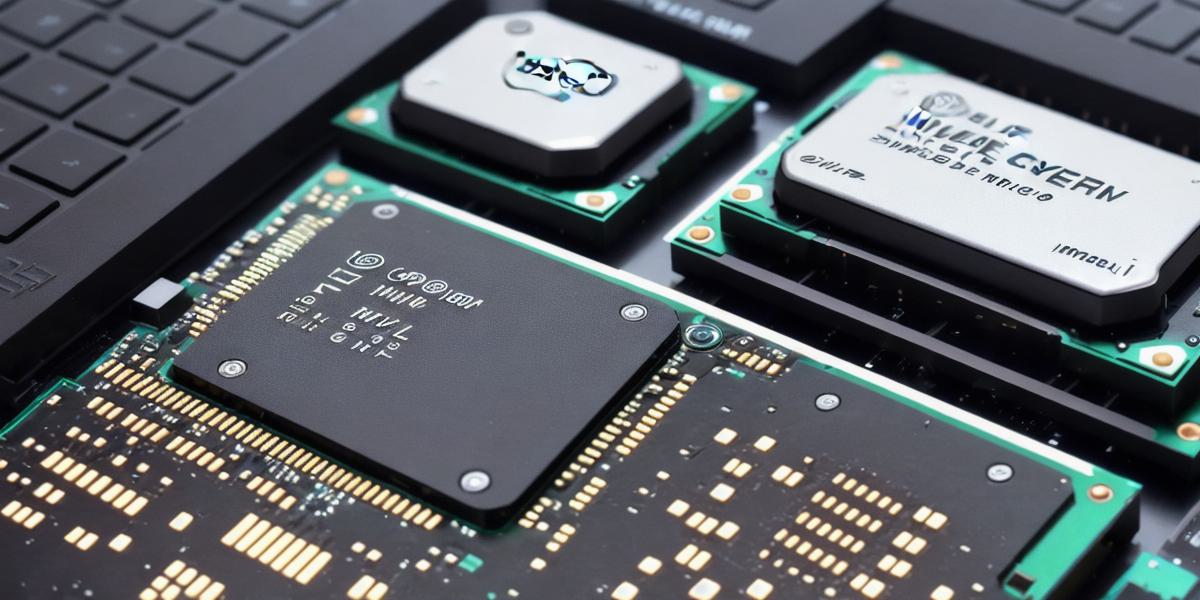Unleashing Unreal Engine: Which Processor Reigns Supreme – Ryzen or Intel?

Introduction:
When it comes to choosing the right processor for your Unreal Engine project, there are two main contenders in the market: AMD’s Ryzen and Intel’s Core series. Both processors have their strengths and weaknesses, and choosing the best one depends on various factors such as budget, performance requirements, and compatibility with existing hardware. In this article, we will explore the key features and benefits of both processors, analyze real-world scenarios, and help you make an informed decision.
The Great Debate: AMD Ryzen vs Intel Core Series
When it comes to Unreal Engine development, both AMD Ryzen and Intel Core series are powerful processors that can handle demanding workloads. However, there are some key differences between the two that can impact your performance and budget. Here’s a quick comparison of the two:
Performance:
In terms of raw processing power, Intel’s Core series tends to perform better than AMD’s Ryzen. This is due to Intel’s larger production capacity and more advanced microfabrication technology, which allows them to produce processors with higher clock speeds and more cores. However, Ryzen has made significant strides in recent years, especially with the release of its latest generation (7th Gen), which offers improved performance and efficiency compared to previous generations.
Budget:
One of the key factors that developers consider when choosing a processor is their budget. While Intel’s Core series is generally more expensive than Ryzen, there are some affordable options available in the market. For instance, the Ryzen 3 series offers excellent performance at a lower price point compared to the entry-level Core series.
Compatibility:
Another important consideration when choosing a processor is compatibility with existing hardware. Both AMD and Intel processors are compatible with most Unreal Engine software and plugins. However, some graphics cards may have better compatibility with one processor over the other, so it’s essential to check before making a purchase.
Real-World Scenarios:
To help you make an informed decision, let’s take a look at some real-world scenarios and compare the performance of Ryzen and Intel processors in these situations.
Scenario 1: Real-Time Rendering
In real-time rendering, the processor’s performance is crucial to delivering smooth gameplay and high-quality graphics. Both AMD and Intel processors have excellent multithreading capabilities, which can help improve performance when running multiple tasks simultaneously. However, Intel tends to perform better in this area due to its higher clock speeds and more cores.
Scenario 2: Content Creation
Content creation requires a lot of processing power, especially when dealing with large files and complex animations. In this scenario, both Ryzen and Intel processors can handle the workload, but AMD’s newer generation (7th Gen) has made significant improvements in terms of performance and efficiency compared to previous generations. This means that you may be able to save some money by opting for a Ryzen processor instead of an Intel Core series.
Scenario 3: Virtual Production
Virtual production requires high-performance processors with excellent multithreading capabilities to handle multiple tasks simultaneously. Both AMD and Intel processors are well-suited for this scenario, but Intel tends to perform better due to its higher clock speeds and more cores. However, if you’re on a tight budget, Ryzen’s newer generation (7th Gen) can still offer excellent performance at a lower price point.
FAQs:
Q: Can I use both AMD Ryzen and Intel Core series with Unreal Engine?
A: Yes, both processors are compatible with most Unreal Engine software and plugins. However, some graphics cards may have better compatibility with one processor over the other, so it’s essential to check before making a purchase.
Q: Is AMD Ryzen better than Intel Core series for content creation?
A: While both processors can handle content creation tasks, AMD’s newer generation (7th Gen) has made significant improvements in terms of performance and efficiency compared to previous generations, which means you may be able to save some money by opting for a Ryzen processor instead of an Intel Core series.
Q: What are the key factors to consider when choosing between AMD Ryzen and Intel Core series for Unreal Engine development?
A: Performance, budget, compatibility with existing hardware, multithreading capabilities, and processing power are some of the key factors to consider when choosing between AMD Ryzen and Intel Core series for Unreal Engine development.








